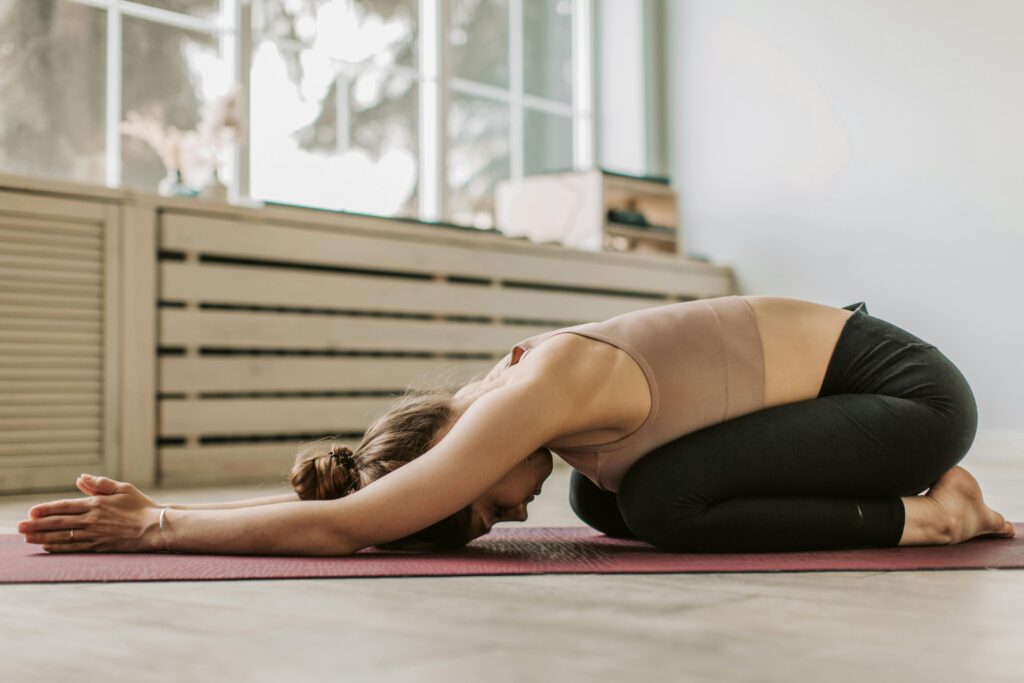People deal with stress every day because of how swiftly life is. Stress can be too much, from work pressure, family duties, money worries, or social obligations. Medication and therapy can help, but many people would rather find natural ways to deal with stress instead of taking pills or going to therapy. You are not the only one who wants to know how to naturally relieve stress. Millions of people in the US and around the world are looking for easy, cheap, and No drugs ways to deal with their worries and feel more in charge. There are, however, tried and authentic methods and daily habits that can make a difference.

Practice Deep Breathing Exercises
Many people find it quick and easy to calm down by taking deep breaths. Your blood pressure and heart rate go down because it tells your brain to calm down.
Try This Simple Breathing Technique:
Feel free to sit or lie down.
Take four slow breaths in through your nose.
Take a four-second breath hold.
For six seconds, let out air through your mouth.
Do this 20 to 30 times.
Doing this a few times daily can help your body feel less tense and more relaxed.
Move Your Body: Exercise and Stretching
One of the best natural ways to deal with worry is to do something active. Endorphins are chemicals that make you feel good and lift your mood. When you move, your body releases them.
Practical Exercises for Stress Relief:
Going for walks outside (especially in nature)
Do yoga or light stretching.
Getting down to your favourite music
Running or riding a bike
Even 15 to 30 minutes of light exercise daily can help you feel less anxious and think more clearly.
Create a Consistent Sleep Schedule
Not getting enough sleep makes worry worse. Getting 7 to 9 hours of soundsleep every night helps your body reset and prepares you to deal with problems during the day.
Tips for Better Sleep:
A half hour before bed, do not look at any screens.
Make sure your bedroom is cool and dark.
Keep the same time each day to sleep and wake up.
No coffee after 2 p.m.
Your body and mind will feel calmer and better handle daily stresses if you prioritise rest.
Limit Screen Time and Digital Overload
Smartphones and social media can stress and overload you, especially if you constantly get bad news, alerts, or too much information.
Set Healthy Boundaries:
During certain hours, use “Do Not Disturb” mode.
Take breaks from your devices often.
Do not look at your phone first thing in the morning or right before bed.
Instead, read, write in a diary, or enjoy quiet time away from the computer.
Connect with Nature
Cortisol is a stress hormone shown to drop when you spend time outside, especially in green areas. This can also help your mental health.
Ways to Reconnect with Nature:
On the ground, walk barefoot on grass.
Hike or walk through nature.
Relax in a yard or park.
Watch the sun go down or rise.
Being in nature is a peaceful experience that can help you relax and feel better.
Stay Hydrated and Eat Nourishing Foods
What you eat and drink can change your mood and worry level. Too much sugar, processed foods, and insufficient water can make you feel jittery, nervous, or tired.
Choose These Stress-Reducing Foods:
Nuts, seeds, and leafy greens (high in magnesium)
Fish that are high in fat, like salmon
Citrus fruits, bananas, and berries
Teas made from herbs, like chamomile or lemon balm
Do not forget to drink plenty of water daily to keep your body and mind sharp.
Practice Gratitude Daily
Being thankful can help you forget about your problems. Now that your brain has changed, you can see the good things in your life.
Take a moment to do this:
Write down three things you’re grateful for every day.
Say “thank you” out loud for little things that make you happy.
Remember a good time.
After a while, your brain will learn to think about good rather than nasty things.
Try Journaling for Mental Clarity
Writing down your thoughts is a safe and private way to relieve stress. Writing in a journal can help you determine what’s bothering you and often lead to answers you hadn’t thought of before.
Journaling Tips:
You do not need to worry about spelling or language.
Daily, write for 5 to 10 minutes without any rules.
Write down what’s on your mind, or use suggestions like
“How do I feel right now?” “
“What do I need today?” “
It is like talking to yourself in a free, healthy way.
Laugh More: Use Humour as a Stress Tool
A natural way to relieve stress is to laugh. It makes you feel better, relaxes your muscles, and boosts your defence system.
Ways to Add More Laughter:
Watch funny movies or TV shows.
Laugh out loud talks.
Tell your family and friends jokes.
Think back on funny times in your life.
One of the best, cheapest, and most fun ways to feel better quickly is to laugh.
Practice Mindfulness and Meditation
When mindful, you pay attention to the present moment instead of the past or the future. It makes you feel less anxious and lets you watch your thoughts without judging them.
Simple Mindfulness Ideas:
Pay attention to your breath for two minutes.
Pay attention to the taste and feel as you eat slowly.
While you walk, pay attention to what’s going on around you.
For people new to meditation, apps like Headspace and Insight Timer have guided exercises.
Listen to Calming Music or Nature Sounds
Music has a strong effect on how we feel. Sounds that calm you down can quickly relax your body and lower your stress.
Relaxing Sound Ideas:
Music with instruments or orchestra
Animal sounds like waves or rain.
Spa sounds or background music.
Listening can help you relax your mind while you work, walk, or get ready for bed.
Declutter Your Space
Too much stuff in a room can make your mind go too. Having messy surroundings can make you feel more stressed and anxious.
Simple Decluttering Tips:
Start with one corner or box.
Get rid of or give away things you don’t use.
Keep things open and clean.
Make a quiet spot, or “peace zone.”
Having things in order in your place makes you feel calm and helps your mind breathe.
Spend Time with Pets or Animals
Having a pet and spending time with them can help you feel better and less anxious. Petting a dog or cat makes you feel better and lowers your blood pressure.
Do not have a Pet?
Bring your pets to see a friend.
Help out at an animal shelter.
Animal movies on the web can help you calm down.
Spending even a short time with animals can make your day better.
Practice not feeling bad when you say “no.”
Many people are stressed out because they say “yes” to too many things, like parties, work, and favours. Setting boundaries is one of the most critical skills for lowering stress.
How to Politely Say “No”.
“I wish I could, but I can not now.”
“I need to do something else first.”
“I am putting my health and happiness first.”
It is not selfish to keep your energy safe; it is smart.
Try Aromatherapy and Essential Oils
Using smell to remember and feel things is very strong. Some essential oils can help relax you and calm your nervous system.
Popular Oils for Stress Relief:
Lavender: helps you relax and sleep
Peppermint: awakens and cools you down.
Bergamot: makes you feel good
Eucalyptus: makes you feel better
You can put a few drops of oil in a warm bath, use a diffuser, or put diluted oil on your hands.
Conclusion
It is possible and even helpful to learn how to deal with stress without drugs or therapy. You already have what you need to feel better. It’s all about making small, regular choices that are good for you.


